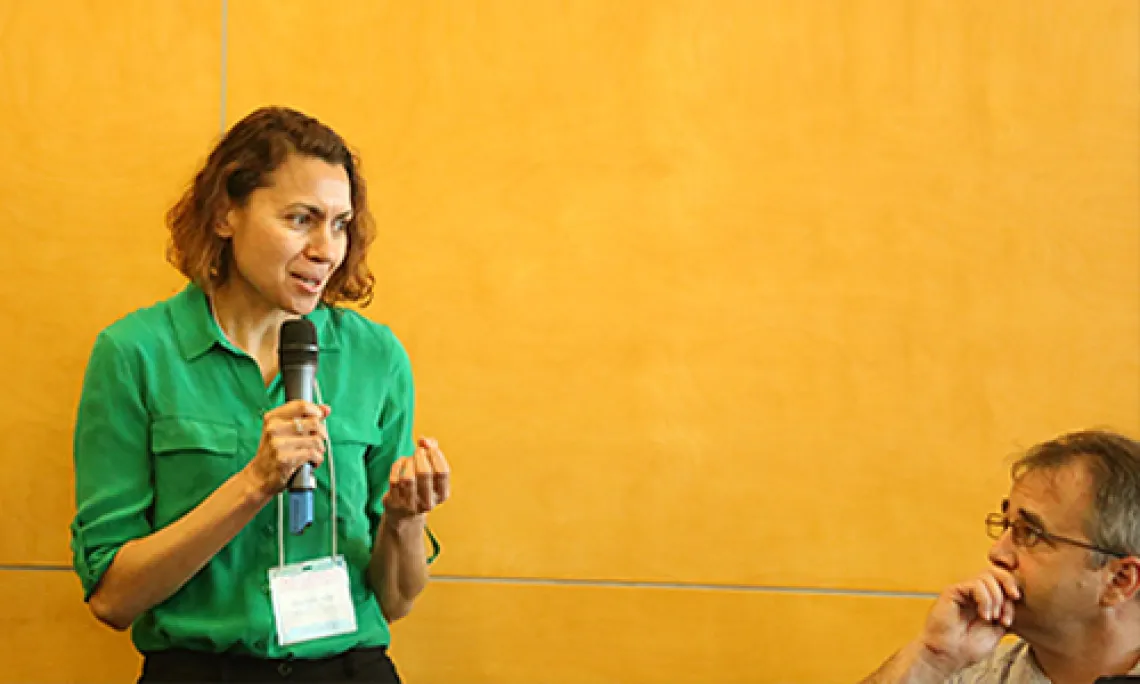Making research relevant: Native researchers attend the Indigenous Open Data Summit in Madrid

On October 5, 2016 the Native Nations Institute and the US Indigenous Data Sovereignty Network (USIDSN) hosted the first annual Indigenous Open Data Summit, a pre-meeting event of the International Open Data Conference in Madrid, Spain. The Summit gathered academics and researchers from around the globe to discuss Indigenous data sovereignty. Sixteen presenters shared information about the specific work they are doing in their home communities and in partnership with local and state governments.
Presentations addressed how open data can be used to increase governmental accountability, to map subaquatic Indigenous sacred sites, to reframe research methodologies through the application traditional knowledge, and for citizen engagement and capacity building. A key outcome of the summit was a consensus statement on the importance of including Indigenous peoples and nations in the International Open Data Charter.
On October 6, at the main conference, NNI associate director and USIDSN co-founder Stephanie Carroll Rainie moderated a session entitled “Indigenous + Data.” Panelists included Tahu Kukutai, Kirikowhai Mikaere, Andrew Sporle, and James Hudson, members of Te Mana Raraunga – Māori Data Sovereignty Network members, and Ji-Ping Li, a researcher from Taiwan. Engaging Indigenous peoples as partners in the open data movement was a key theme of this session. Better inclusion and engagement would provide Indigenous peoples with more opportunities to develop self-determination initiatives, to protect tribal sovereignty, and to participate in decisions about the release of information describing their populations.
Following the International Open Data Conference, Andrew Martinez, NNI research specialist, traveled to Bilbao, Spain with members of the Te Mana Raraunga to facilitate a workshop for students and faculty at the University of Basque Country. Andrew's presentation focused on the development of the US Indigenous Data Sovereignty Network and highlighted the network’s progress, projects, and future directions. He also complemented Te Mana Raraunga’s presentation on the impacts of settler policy in New Zealand with information about the impacts of US Indian policy on US-based Native nations. Students found the US and New Zealand perspectives inspiring, especially the stories the visitors shared of resistance and success.

